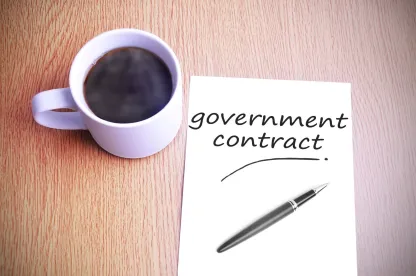Following President Biden’s inauguration, the majority of the top 5 government contracts of 2021 are information technology (IT)-related. Department of Defense seeks contractors for its transition to cloud computing. NASA continues to tap private industry for its moonshot program. The General Services Administration (GSA) expanded its Streamlined Technology Acquisition Resource for Services (STARS III) program for a third iteration, inviting small and disadvantaged IT businesses to bid on providing technology services to federal agencies. To combat COVID-19, the federal government committed $4 trillion during 2021 towards vaccines, treatment, and testing, with the aid of a variety of pharmaceutical companies. The National Institutes of Health began soliciting bids on a $50 billion contract vehicle designed to streamline government agencies’ IT services, though the program was initially not well received by potential contractors.
As IT technologies improve and change, more players enter the private-industry space exploration ring, and COVID-19 rages on, government contractors participating in these contracts have a preeminent obligation to be honest and accountable because they are being entrusted with significant public trust and taxpayer money. Whistleblowers—industry insiders with specialized knowledge as to the nature of work being performed as part of a government contract—can help ensure compliance with contract rules.
Common forms of government contracts fraud include:
-
Obtaining contracts through false statements made in bidding documents.
-
Misrepresenting the cost of a project, or “underbidding” on contracts.
-
Bid-rigging or kickbacks in connection with bids on government contracts.
-
Engaging in practices such as “cross-charging” or improper cost allocation, in which costs incurred by the contractor in connection with one contract (for example, a fixed price contract or a commercial contract) are improperly charged to a “cost-plus” government contract.
-
Delivering products or services to the government that does not meet the actual contract specifications while certifying that they do.
For GSA contracts specifically, for a contractor to be eligible for inclusion on the GSA Schedule, they must meet all of the GSA’s requirements, and failure to meet these requirements may constitute a violation of the False Claims Act. Common types of GSA contract fraud include:
-
Failure to comply with Trade Agreements Act
-
Failure to comply with “best pricing” requirements for government contracts
-
Failure to comply with price reduction requirements
-
Fraud in obtaining set-aside contracts
If you have information that a government contractor is engaged in any of the above types of activity or is otherwise engaging in unlawful conduct connected with government contracts, you may be eligible to bring a qui tam lawsuit and collect substantial rewards. The Department of Justice needs whistleblowers to report fraud involving government contracts.





 />i
/>i

